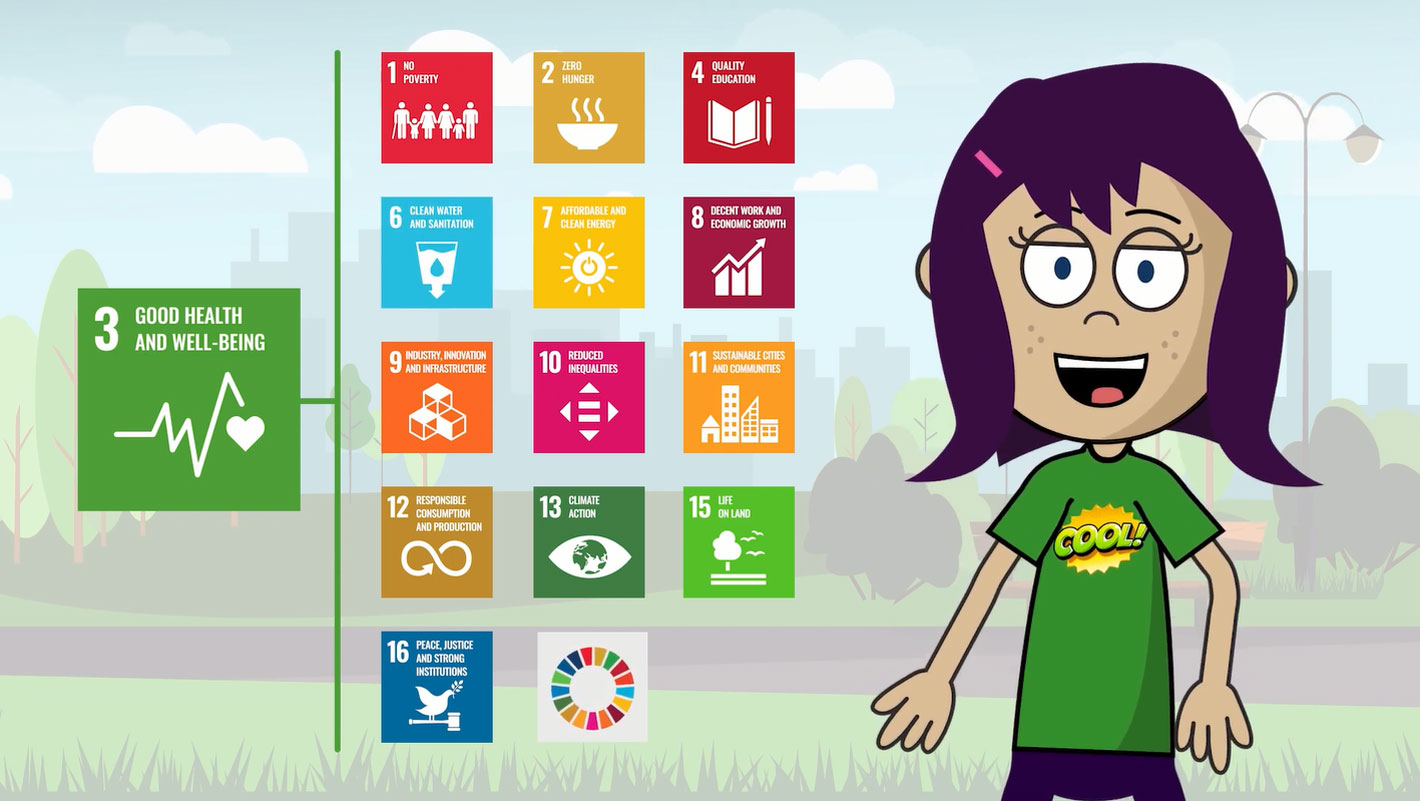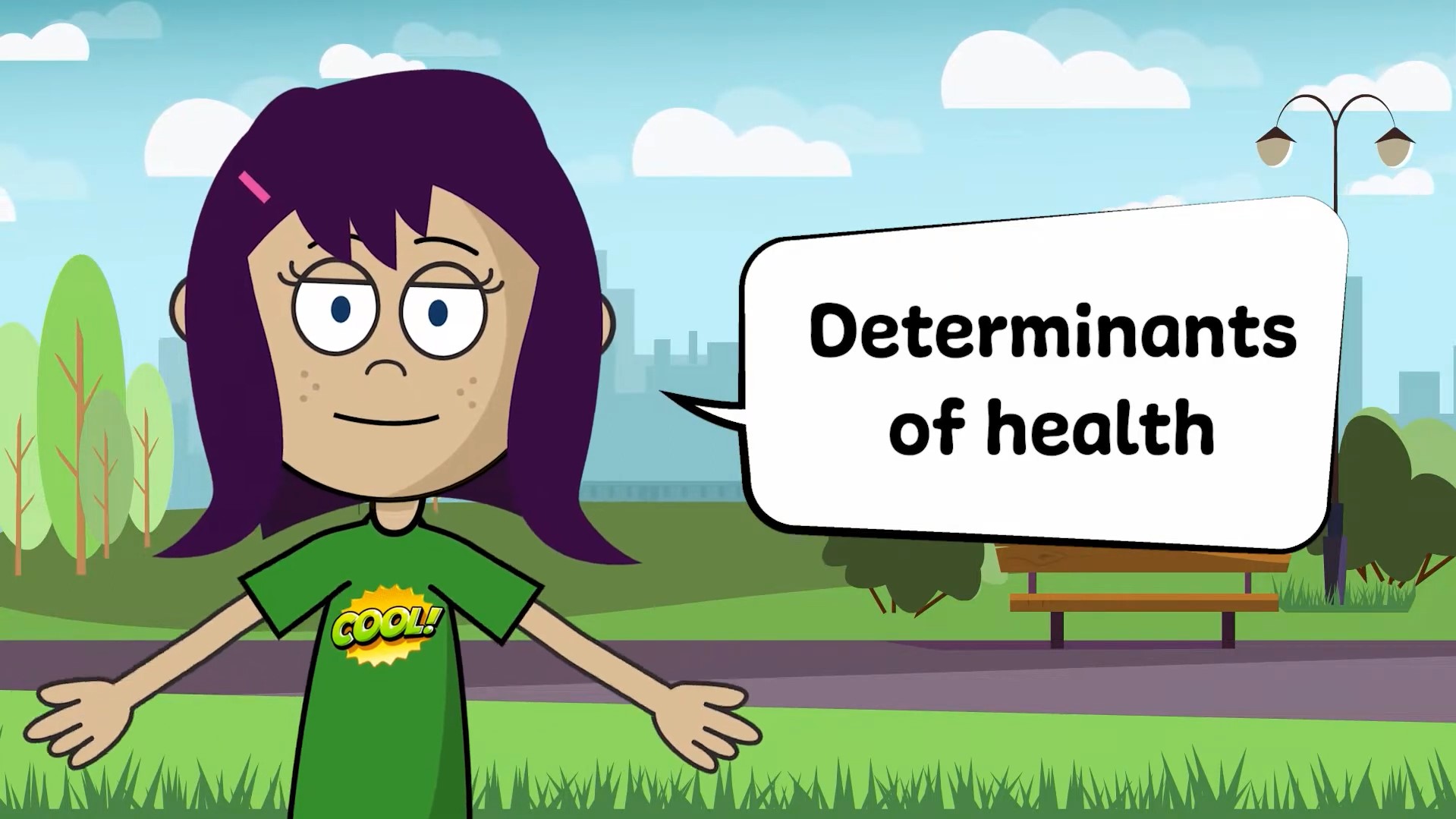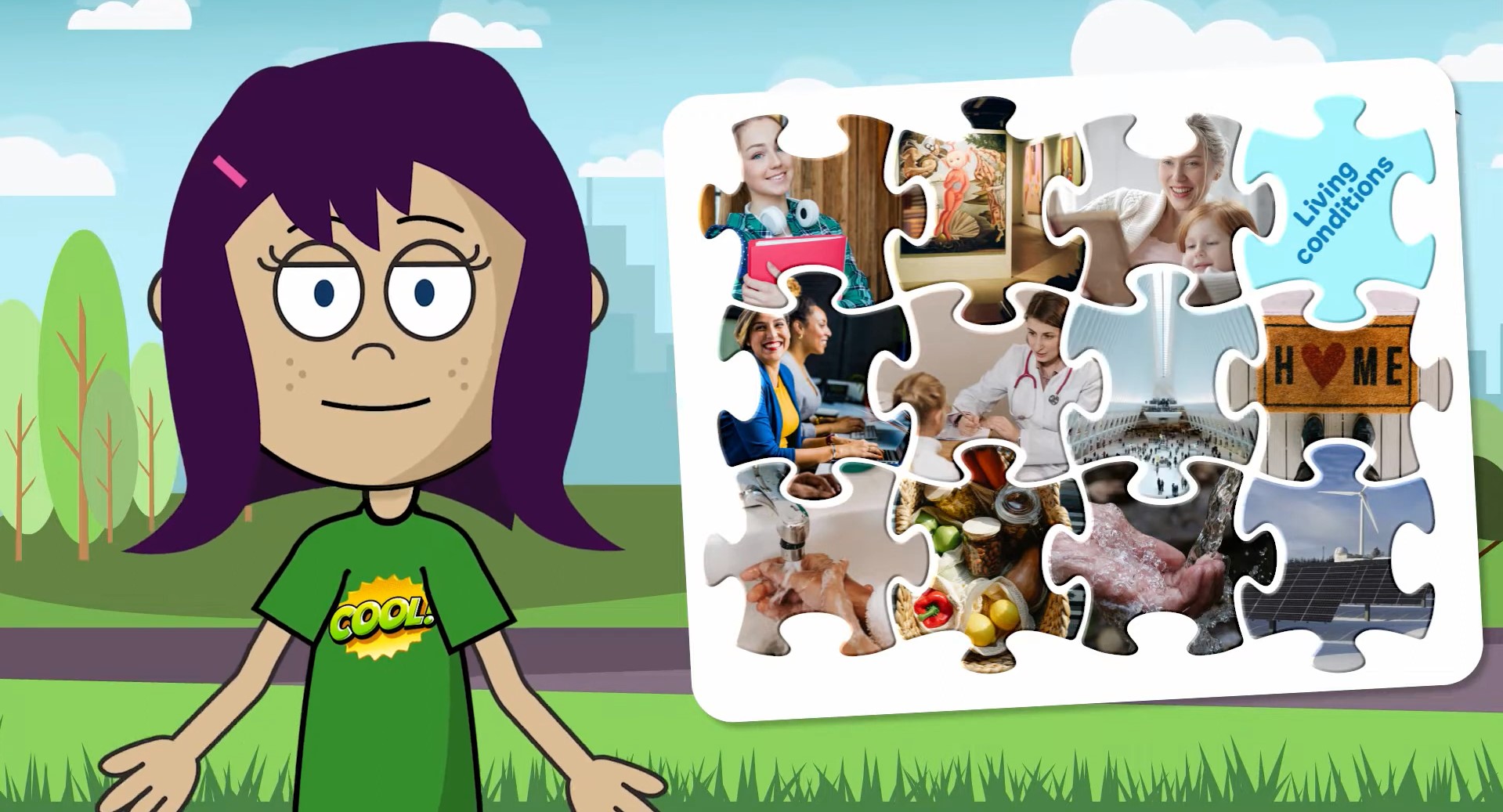Videos
PAFSE intro video
In this video, we talk about life expectancy, determinants of health, attributes of healthy communities and sustainable development goals. The video is subtitled in English.
Part 1 – Determinants of health
In this video, we talk about life expectancy and determinants of health. The video is subtitled in English.
Part 2 – Αttributes of healthy communities
In this video, we talk about attributes of healthy communities and sustainable development goals. The video is subtitled in English.
“Are viruses alive? Reflections on the nature of these intriguing creations” by prof. Robert Nawrot
On the 15th of February, 200 of students from schools involved in PAFSE project attended to the lecture about true nature of viruses. Prof. Robert Nawrot presented crucial and interesting information about world of the viruses, in the end students had opportunity to ask questions to the expert.
What are probiotics, prebiotics, symbiotics, functional foods, novel foods, dietary supplements
The lecture for schools covered by the PAFSE project was given by Leszek Borkowski, MD, PhD, Chairman of the Together in Disease Foundation. The lecture presented the most important information on the various preparations and types of food are used by people to support the functioning of the body.
“The path of a drug from idea to pharmacy and hospital” by PhD Leszek Borkowski
Webinar: Reflective exploration of socio-scientific issues
e-me Digital Educational Platform, European edition
In this training workshop, Dr Elina Megalou, Director of the Educational Technologies, Training & Certification Directorate at CTI DIOPHANTUS, presents the European Digital Educational Platform “e-me”, a collaborative, cloud-based, social Personal Learning Environment designed for pupils and teachers. The European, open to everyone “e-me for all” edition of e-me was customized in the context of the PAFSE project, to support collaborations and partnerships among schools, teachers, pupils, parents, local organizations, etc. The video starts with an overview of e-me, its pedagogical principles and design, followed by a demonstration of the platform’s main workspace, core functionality, and available apps.
e-me supports the creation of private and public collaboration spaces (hives), communication and social networking, organization, storage and exchange of files on the cloud, easy creation of digital learning objects, assigning and monitoring of tasks, creation of e-portfolios, display of work via collaborative and personal blogs, use of open educational resources, while it further provides digital “tools” to support teaching and learning. e-me, originating in Greece by CTI, stands as an official nationwide digital platform of the Greek MoE for schools, serving more than 650,000 teachers and students.
Photodentro PAFSE, a European Digital Repository of STEM Open Educational Resources for Public Health Education
In this training workshop, Dr Elina Megalou, Director of the Educational Technologies, Training & Certification Directorate at CTI DIOPHANTUS, introduces Photodentro PAFSE, a European, Educational Repository, developed within the PAFSE project, for hosting, classifying, documenting, and openly sharing multilingual STEM digital learning resources for Public Health Education.
Photodentro PAFSE hosts (a) Digital Learning Objects (such as simulations, visualizations, conceptual maps, interactive exercises) and (b) Educational Scenarios, in Portuguese, Greek, English, and Polish, covering STEM (Science, Technology, Engineering and Mathematics) topics, addressing mainly Public Health Education issues. The repository supports free text search, browsing by learning resource type and by subject, using a taxonomy of terms for STEM education, as well as structured search using multiple filters. To describe and index the resources, Photodentro PAFSE makes use of metadata based on the IEEE LOM specification.
Introduction to the project and objectives of PAFSE – Partnership for science education
The PAFSE project is an educational project that addresses public health challenges. The recording discusses its assumptions (pillars) and objectives, as well as the role of schools in the implementation of the project.
What is science, scientific practices and how do they relate to socio-scientific issues?
The recording is the first part of a presentation of the key teaching ideas in the PAFSE project. One of the pillars of the project is inquiry-based science education, which includes various learning activities that will reflect the nature of science.
IBSE components: project/problem-based learning, argumentation
The recording is the second part of the presentation of the key teaching ideas in the PAFSE project, which discusses project/problem-based learning and argumentation according to the Toulmin model.
IBSE components: modelling, evidence-based practice, IBSE in the context of public health
The recording is the third part of a presentation of key teaching ideas in the PAFSE project, highlighting the differences between modelling and modelling and the use of science education to explore socio-scientific issues.
Educational scenarios – introduction
The main ideas of the prepared scenarios and their constant elements in relation to the three pillars of PAFSE were discussed. The tasks of the schools in the project and the role of the partners are indicated.
Educational scenario “Planet of viruses” part 1
Presentation of the first part of the scenario “Planet of viruses”, which discusses: lessons 1-2 “What is a virus?” and lessons 3-4 “Their simple structure and complex relationships”.
Educational scenario “Planet of viruses” part 2
Presentation of the second part of the “Planet of Viruses” scenario, which discusses: lessons 5-6 “Disease-causing – virus vs immune system.
Educational scenario “Different faces of bacteria” part 1
Presentation of the first part of the scenario “The different faces of bacteria” and the lessons 1-2 “What are bacteria? Are there perfect bacteria?”
Educational scenario “Different faces of bacteria” part 2
Presentation of the second part of the scenario “Different Faces of Bacteria” and the 3-4 lessons prepared as part of it “The Life of Bacteria under a magnifying glass – what is it like to be a bacterium?”
Educational scenario “Different faces of bacteria” part 3
Presentation of the third part of the scenario “Different Faces of Bacteria” and prepared within it lesson 5 “The Microbiome – how many people and how many bacteria are in you?”, lesson 6 “Bacteria – enemy or friend”, lesson 7 “Bacteria in court”.
Educational scenario “Vaccinations – whether and if so, how does the immune system learn?” part 1
Presentation of the first part of the scenario “Vaccination – if and if so, how the immune system learns” and prepared within it lesson 1 “Pathogenic viruses and bacteria are everywhere – why don’t we get sick all the time?”, lesson 2 “Antibodies – the most sophisticated form of fighting pathogens. Why do antibodies sometimes go wrong with antigens?” lesson 3 “Vaccines – what are they?”.
Educational scenario “Vaccinations – whether and if so, how does the immune system learn?” part 2
Presentation of the second part of the scenario “Vaccination – if and if so, how the immune system learns” and the prepared lesson 4 “Panic virus – vaccination in the social dimension”.
Educational scenario “Vaccinations – whether and if so, how does the immune system learn?” part 3
Presentation of the third part of the scenario “Vaccination – if and if so, how the immune system learns” and continuation of the discussion of the activities planned for Lesson 4 “Panic virus – vaccination in the social dimension”.
Open school concept
The video discussed the concept of open schooling. The presenter pointed out ways to find partners, build networks, link the collaboration to the curriculum and carry out evaluation.
Introduction to the E-me digital platform
Fimik provides information on the E-me digital learning platform, pointing out its main features that allow it to serve as a collaborative space for students and teachers.
Creating an account on the E-me digital platform
A short instructional video on how to set up an account on the E-me learning platform.
Basic settings, profile creation and contact search
The recording discusses the basic settings for the appearance of the homepage, the ability to expand your own profile and searching for other E-me users.
Searching for and creating a Hive
The recording is used to demonstrate how to search for Hives and create them. It discusses the differences between public and private hives and shows how to create the former step by step.
Inviting users to the Hive, publishing on the Hive wall
At the disposal of each hive is a wall where group members can publish posts and comment on existing content. The video shows how to do this, but beforehand shows how to gather such hive members.
Creation of tasks in E-me content
The recording serves to demonstrate the possibilities of creating interactive content using the E-me content application. A few of the available resource types are selected and how to design tasks is demonstrated.
Assignment of tasks to Hive members
An instructional video showing how to assign tasks to a specific Hive or to specific Hive members using the E-me tasks app.
Introduction to the Photodentro digital repository
The video shows how to search the Photodentro digital repository, how to filter, browse and download learning objects.
Practical use of Photodentro
The video demonstrates how to use the Photodentro digital repository and shows some examples of these.
PAFSE model/approach
Teacher workshop on PAFSE Model and teaching-learning methods. This video gives an overview of innovative teaching-learning methodologies, open schooling model and project-based learning.
Non-communicable Diseases
Teacher workshop on the theme “non-communicable diseases”.
Sustainable Development Goals
Teacher workshop on the theme “Sustainable Development Goals”.
Zoonotic Diseases and Pandemics
Teacher workshop on the theme “The role of the environment and animal health on zoonoses and pandemics”.
Educational scenario: ‘Mathematical modelling of epidemics and the importance of non-pharmaceutical interventions’
The playlist consists of the following 6 sections. English subtitles are available:
- Introduction to the educational scenario ‘Mathematical modelling of epidemics and the importance of non-pharmaceutical intervention’
- Technical scientific content
- Educational content
- Activities I: New concepts and competencies
- Activities II: Student research project
- Summary of the scenario
Educational scenario: ‘Social dimensions of an epidemic or pandemic outbreak’
The playlist consists of the following 6 sections. English subtitles are available:
- Introduction to the educational scenario ‘Social dimensions of an epidemic or pandemic outbreak’
- Technical scientific content
- Educational content
- Activities I: New knowledge and competencies
- Activities II: Student research project
- Summary of the scenario
Educational scenario: ‘Function of vaccines, vaccine hesitancy, and misinformation’
The playlist consists of the following 6 sections. English subtitles are available:
- Introduction to the educational scenario ‘Function of vaccines, vaccine hesitancy, and misinformation’
- Technical scientific contents
- Educational content
- Activities I: New knowledge and activities
- Activities II: Student research project
- Summary of the scenario
Digital Learning Objects about infectious diseases and indicative instructional design
The playlist consists of the following sections. English subtitles are available:
- Epidemic SIR model I (Familiarization with the digital environment)
- Epidemic SIR model II (Instructional contextualization)
- Vaccine types I (Familiarization with the digital environment)
- Vaccine types II (Instructional contextualization)
- Infectious diseases timeline I (Familiarization with the digital environment)
- Infectious diseases timeline II (Instructional contextualization)
- Detection of medical misinformation
- Vaccine efficacy and adverse effects
Students with Intellectual Disabilities and Science Education
The playlist consists of the following sections. English subtitles are available:
- Introduction-Outline
- The profile of students with mild Intellectual Disabilities (ID)
- Evidence-based practices for students with ID
- Special Education: Behaviorism or Constructivism?
- Systematic instruction
- Inquiry learning
- The phases of inquiry learning
- The levels of inquiry learning
- Students with ID and science education
- The contribution of Digital Technology
Cognitive and social determinants of health during an epidemic/pandemic for students with Intellectual Disabilities
The playlist consists of the following sections. English subtitles are available:
- Introduction – outline
- Areas of Interest and Intervention Context
- Inclusion criteria for the participation of students with ID
- Pedagogical and scientific content of the intervention
- Learning objectives
- Digital learning objects – supplementary learning resources
- School research paper – stages of the intervention
- Main intervention (part 1)
- Main intervention (part 2)
- Maintenance and generalization
Students with Intellectual Disabilities: Digital Learning Objects in Science Education
The playlist consists of the following sections. English subtitles are available:
- Introduction – outline
- Areas of interest
- Learning objectives
- Inclusion criteria – students’ learning profile
- Digital learning objects
- The concept map of COVID-19
- The concept map of the symptoms of COVID-19
3D modelling to address pandemic challenges
This webinar presents the usefulness of 3D modelling for learning topics in the area of Public Health, analysing practical cases of the adoption of 3D modelling and introducing a three-dimensional modelling interface.
3D printing to address pandemic challenges
This webinar presents the usefulness of 3D printing for learning topics in the area of Public Health, identifying concepts and characteristics of 3D printing, analysing different types of 3D printing and recognizing the potential and limitations of 3D printing in learning the topic of Public Health.
3D animation to address pandemic challenges
This webinar presents the usefulness of 3D animation for learning topics in the area of Public Health, identifying new technologies for learning STEM subjects and introducing multimodal approaches to teaching through the use of 3D animation and modelling tools.
School Project Risk Factors of Road Accidents
In the educational scenario, “Risk Factors of Road Accidents”, what is proposed, as a research project, is the collection of data through a questionnaire to characterize (self-declared) behaviors, attitudes, and, risk perception of unsafe behaviors in traffic.
Educational scenario on “Sustainable Mobility”
This video presents information and guidelines for implementing the educational scenario on “Sustainable Mobility”.
School Project Sustainable Mobility
In the educational scenario, “Sustainable Mobility”, what is proposed, as a research project, is to carry out a questionnaire to characterize the Mobility Patterns of the School Community.
Quality of Life and Road Safety
Video about Quality of Life and Road Safety belonging to the Educational Scenario “Sustainable Mobility”, developed by @prevencaorodoviariaportuguesa within the scope of the @pafse Project.
Good Practices in Sustainable Mobility
Video about Good Practices in Sustainable Mobility belonging to the Educational Scenario “Sustainable Mobility”, developed by @prevencaorodoviariaportuguesa within the scope of the @pafse Project.
Ecological Footprint – Sustainable Mobility
Video about Ecomobility and Ecological Footprint belonging to the Educational Scenario “Sustainable Mobility”, developed by @prevencaorodoviariaportuguesa within the scope of the @pafse.
Pillars of Sustainable Mobility
Video about the Pillars of Sustainable Mobility, belonging to the Educational Scenario “Sustainable Mobility”, developed by @prevencaorodoviariaportuguesa within the scope of the @pafse.
Educational scenario Road Accidents, a Public Health problem
This video presents information and guidelines for implementing the educational scenario on “Road Accidents, a Public Health problem”.
School Project Road Accidents, a Public Health Problem
In the educational scenario, “Road Accidents, a Public Health problem”, what is proposed, as a research project, is to carry out an observational study on the side of the road to characterize risk behaviors in traffic.
Road Safety Indicators
Video about Road Safety Performance Indicators, belonging to the Educational Scenario “Road Accidents, a Public Health problem”, developed by @prevencaorodoviariaportuguesa within the scope of the @pafse Project.
Road Accidents, a Public Health problem
Analysis of National and International Road Accidents, belonging to the Educational Scenario “Road Accidents, a Public Health problem”, developed by @prevencaorodoviariaportuguesa within the scope of the @pafse Project.
Risk Factors of Road Traffic Crashes Educational Scenario
The scenario primarily supports Year 9 teachers in exploring with students the factors that contribute to outcomes in terms of injuries, severity and mortality, contributing to awareness of the SDGs, namely SDG 3.6 (halving the number of road deaths by 2030).
https://photodentro.pafse.eu/v/item/pafse/8586/405
PAFSE Pitch Scenario “Noise pollution and quality of life”
The video briefly explains the objectives, lectures and implementation for the Scenario “Noise pollution and quality of life”.
PAFSE Pitch Scenario “Energy and public health impact”
The video briefly explains the objectives, lectures and implementation for the Scenario “Energy and public health impact”.
PAFSE Pitch Scenario “Droplets and the physics of virus transmition”
The video briefly explains the objectives, lectures and implementation for the Scenario “Droplets and the physics of virus transmition”.
PAFSE Energy Game Tutorial
PAFSE Energy Game Tutorial – no sound/ just demonstration
.
PAFSE Extended Scenario “Noise pollution and quality of life”
The video explains the objectives, lectures and implementation for the Scenario “Noise pollution and quality of life”.
PAFSE Extended Scenario “Energy and public health impact”
The video explains the objectives, lectures and implementation for the Scenario “Energy and public health impact”.
PAFSE Extended Scenario “Droplets and the physics of virus transmition”
The video explains the objectives, lectures and implementation for the Scenario “Droplets and the physics of virus transmition”.
.
PAFSE Final Conference (12 July 2024) – Morning Session
The video contains highlights from the morning session of the PAFSE Final Conference held in Lisbon on 12 July 2024.
PAFSE Final Conference (12 July 2024) – Afternoon Session
The video contains highlights from the afternoon session of the PAFSE Final Conference held in Lisbon on 12 July 2024.




